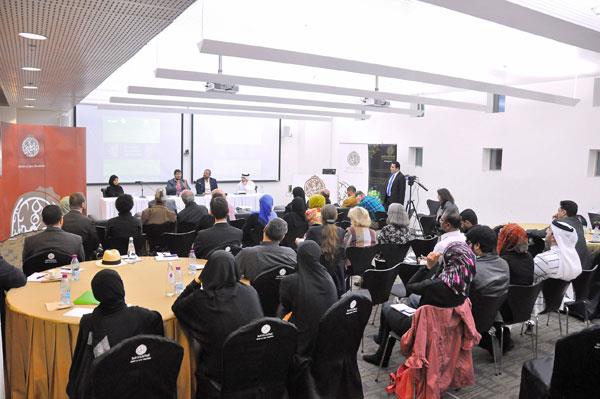Experts Provide Insights into Quranic Botanical Gardens in Qatar

The Botanic Preservation in Islam seminar attracted distinguishable audience of diverse academic and professional sectors.
QBGP’s mission is to raise awareness of plants, botanical terms and conservation principles mentioned in the Holy Quran and Sunnah. So far, the project has managed to collect 22 botanical species, which are mentioned in the Quran and Sunnah. These species belong to three geographical areas: the Mediterranean, the Desert and Tropical.
Fatima Saleh Al Khulaifi, Project Manager of QBGP, explained the importance of plants being mentioned in the Quran, noting that it is a call to human beings to contemplate, consider and think. Those references proclaim that all living things worship Allah and that it is also an emphasis on the importance of preserving and protecting the environment to achieve sustainability.
Al Khulaifi said Islamic gardens were established to serve purposes such as recreation, relaxation, contemplation and comfort. They are distinguished by having water, seats and shades like the Taj Mahal, the Persian and Moroccan Gardens.
Dr Jasser Auda, Associate Professor in Public Policy in Islam from QFIS, explained the relationship between Islamic ethics and botanic life. There are abundant verses in the Quran about nature and plants, and the first theme that attracts attention is plant consciousness, for example, any piece of plant is aware of the divine existence, worships and praises Allah, and performs prayer in its own way.
When people tend to plants, they should understand that plants have feelings. They should try to connect with them because they are Allah’s creatures, and this is one way to appreciate Allah’s strength and power. No harm should be inflicted on plants and Sunnah introduces incidents that prove that plants are living creatures like human beings.
Quranic texts indicate that diversity, whether in human beings, plants, or animals, is a phenomenon meant to exist, and that it did not happen haphazardly. Differences in colour, shape and smell inspire the human being towards more appreciation of the divine oneness and power. Preserving this diversity in plants or animals that may become extinct is an Islamic approach.
The Quran has made several analogies between the life cycles of humans and plants, so that the reader can deduce morals through similarities and comparisons. These morals teach people how to deal with and preserve the botanic life.
Dr Evren Tok, Academic Coordinator of the Master Program of Public Policy in Islam, stressed cooperative relationship between QFIS and QBGP and how they share common working areas. Both deal with multidisciplinary issues and topics, and try to enhance and activate noble values that can promote economic and social development.
Ahmed El Gharib, a researcher from GBGP, explained botanic scientific terminologies with reference to the Quran and Sunnah. The Quran contains around 82 botanic expressions related to plants and their physiology and 60 references in hadiths. There are also 20 kinds of water mentioned in the Quran. At the end of the seminar, members of audience raised questions and a discussion followed.
Source: The Peninsula



